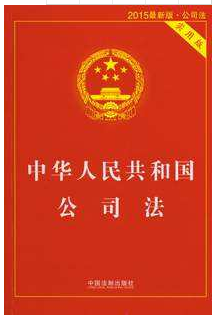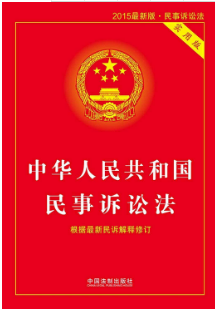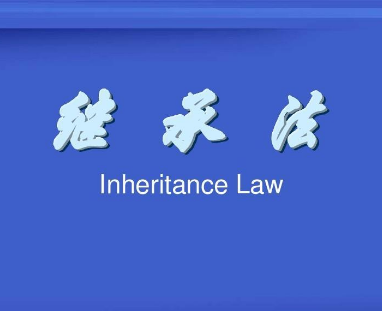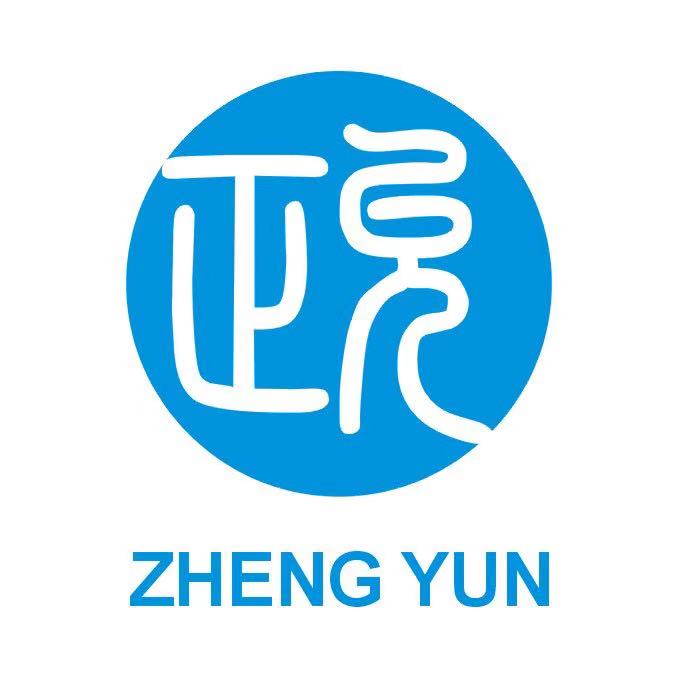Special Provisions on Foreign Civil Procedures
China lawyer,Legal service in China, Legal consultation of investing a project in China,International Trade Dispute Legal Service. Please contact us at info@zhengyunlawyer.com
Part IV Special Provisions on Foreign Civil Procedures
Chapter 23 General Principles
Article 259 The provisions of this Part shall apply to foreign-related civil litigation in the territory of the People's Republic of China. If there is no provision in this series, other relevant provisions of this Law shall apply.
Article 260 Where an international treaty concluded or acceded to by the People's Republic of China has different provisions from this Law, the provisions of the international treaty shall apply, except for the terms reserved by the People's Republic of China.
Article 261 Civil proceedings against foreigners, foreign organizations or international organizations enjoying diplomatic privileges and immunities shall be handled in accordance with the relevant laws of the People's Republic of China and the provisions of international treaties concluded or acceded to by the People's Republic of China.
Article 262 When a people's court hears a foreign-related civil case, it shall use the language and scripts common to the People's Republic of China. If the parties request translation, they may provide it and the expenses shall be borne by the parties.
Article 263 If a foreigner, stateless person, foreign enterprise or organization sues or responds to a lawsuit in a people's court and needs to entrust a lawyer to represent the lawsuit, it must entrust a lawyer of the People's Republic of China.
Article 264 Foreigners, stateless persons, foreign enterprises and organizations that do not have a domicile in the territory of the People's Republic of China entrust a lawyer or other person of the People's Republic of China to represent the lawsuit and send or surrender from outside the territory of the People's Republic of China. The power of attorney shall be validated by the notary public of the host country and certified by the Chinese Embassy or Consulate in the country, or by performing the certification procedures stipulated in the relevant treaty between the People's Republic of China and the host country.
Chapter 24—Administration
Article 265 A lawsuit brought by a defendant who does not have a domicile in the territory of the People's Republic of China due to a contract dispute or other property rights dispute, if the contract is signed or executed in the territory of the People's Republic of China, or the subject matter of the lawsuit is in the Chinese people In the territory of the Republic, or the defendant has property available for seizure in the territory of the People’s Republic of China, or the defendant has a representative office in the territory of the People’s Republic of China, which may be seized by the place where the contract is signed, the place where the contract is performed, the place where the subject matter of the litigation is located. The seat of the property, the place of the infringement or the people's court of the place where the institution resides.
Article 266 The litigation brought about by the implementation of the Sino-foreign joint venture contract, the contract of a Chinese-foreign contractual joint venture, and the Sino-foreign cooperative exploration and development natural resources contract in the People's Republic of China shall be under the jurisdiction of the People's Court of the People's Republic of China.
Chapter 25 Delivery, Period
Article 267 The people's court may serve the litigation documents against the parties who do not have a domicile in the territory of the People's Republic of China.
(1) being served in the manner prescribed in the international treaty concluded or co-participated by the State of the addressee and the People's Republic of China;
(2) being served through diplomatic channels;
(3) The person who has the nationality of the People's Republic of China may entrust the embassy or consulate of the People's Republic of China to the place where the person to be served is served;
(4) serving the litigation agent entrusted by the person to whom the person is entitled to serve on his behalf;
(5) serving to the representative office established by the person to be served in the territory of the People's Republic of China or the branch or business agent entitled to receive the service;
(6) If the law of the country where the person is served is allowed to be delivered by post, it may be served by post, three months from the date of mailing, and the return certificate is not returned, but it is sufficient to confirm that it has been delivered according to various circumstances. , the expiration of the period is deemed to be served;
(7) by fax, e-mail, etc., to be confirmed by the recipient to receive the service;
(8) If it cannot be served in the above manner, the announcement shall be served, and it shall be deemed to have been served for three months from the date of the announcement.
Article 268 If the defendant does not have a domicile in the territory of the People's Republic of China, the people's court shall serve a copy of the complaint to the defendant and notify the defendant to file a reply within 30 days after receiving the copy of the complaint. If the defendant applies for an extension, it is up to the people's court to decide whether it is permitted.
Article 269 If a party who does not have a domicile in the territory of the People's Republic of China refuses to accept the judgment or ruling of the people's court of the first instance, it shall have the right to appeal within 30 days from the date of service of the judgment or ruling. After receiving the copy of the appeal, the appellee shall file a reply within 30 days. If the parties are unable to file an appeal or file a defense during the statutory period, and whether the application for extension is permitted, the decision shall be made by the people's court.
Article 270 The period during which a people's court hears a foreign-related civil case shall not be subject to the restrictions stipulated in Articles 149 and 176 of this Law.
Chapter 26—Arbitration
Article 271 Where a dispute arises in a foreign-related economic, trade, transportation or maritime dispute, the parties shall have an arbitration clause in the contract or a written arbitration agreement after the event, and shall be submitted to the foreign-related arbitration institution of the People's Republic of China or other arbitration institution for arbitration. Prosecuted to the people's court
If the parties do not have an arbitration clause in the contract or fail to reach a written arbitration agreement afterwards, they may file a suit in a people's court.
Article 272 Where a party applies for preservation, the foreign-related arbitration institution of the People's Republic of China shall submit the application of the party to the intermediate people's court at the place where the respondent resides or where the property is located.
Article 273 If the arbitral award is made by a foreign-related arbitration institution of the People's Republic of China, the parties may not sue the people's court. If one party fails to perform the arbitral award, the other party may apply to the intermediate people's court where the respondent is domiciled or where the property is located.
Article 274 If the respondent lodges a ruling on a foreign-related arbitration institution of the People's Republic of China and proves that the arbitral award is in any of the following circumstances, it shall be examined and verified by a collegial panel of the people's court, and the ruling shall not be enforced:
(1) The parties did not have an arbitration clause in the contract or did not reach a written arbitration agreement afterwards;
(2) The respondent did not receive the notice of appointing an arbitrator or proceeding with the arbitral proceedings, or failed to state the opinion because of other reasons that were not the responsibility of the respondent;
(3) The composition of the arbitral tribunal or the procedure for arbitration is inconsistent with the arbitration rules;
(4) The matters of the award are not within the scope of the arbitration agreement or the arbitration institution has no right to arbitrate.
If the people's court determines that the enforcement of the ruling violates the public interest, the ruling will not be enforced.
Article 275 If the arbitral award is decided not to be enforced by the people's court, the parties may reapply for arbitration according to the written arbitration agreement reached between the parties, or may sue the people's court.
Chapter 27 Mutual Legal Assistance
Article 276 According to the international treaties concluded or acceded to by the People's Republic of China, or in accordance with the principle of reciprocity, the people's courts and foreign courts may request each other to serve documents, investigate and collect evidence, and conduct other litigation.
Where a foreign court’s request for assistance is detrimental to the sovereignty, security or social public interest of the People’s Republic of China, the people’s court shall not enforce it.
Article 277 The request and provision of judicial assistance shall be conducted in accordance with the stipulations of international treaties concluded or acceded to by the People's Republic of China; if there is no treaty relationship, it shall be conducted through diplomatic channels.
Foreign embassies and consulates in the People's Republic of China may serve documents and investigate and collect evidence from citizens of the country, but may not violate the laws of the People's Republic of China and may not take enforcement measures.
Except as provided in the preceding paragraph, no foreign institution or individual may serve documents, investigate and collect evidence in the territory of the People's Republic of China without the permission of the competent authority of the People's Republic of China.
Article 278 A request by a foreign court for a judicial assistance from a people's court and its accompanying documents shall be accompanied by a Chinese translation or other texts stipulated by international treaties.
The request of the people's court for judicial assistance from a foreign court and the accompanying documents shall be accompanied by a translation of the country's text or other texts stipulated by international treaties.
Article 279 The people's court provides judicial assistance in accordance with the procedures prescribed by the laws of the People's Republic of China. Where a foreign court requests a special method, it may also be conducted in a special manner as requested, but the special method requested may not violate the laws of the People's Republic of China.
Article 280 If a person's court makes a judgment or ruling on the legal effect, if the executor or his property is not in the territory of the People's Republic of China and the party requests to execute it, the party may directly apply to the foreign court with jurisdiction for recognition. And enforcement may also be requested by the people's courts to be recognized and enforced by foreign courts in accordance with the provisions of international treaties concluded or acceded to by the People's Republic of China or in accordance with the principle of reciprocity.
If an arbitral award made by a foreign-related arbitration institution of the People's Republic of China has a legal effect, if the party concerned or its property is not in the territory of the People's Republic of China, the party concerned shall apply directly to the foreign court with jurisdiction for recognition and enforcement.
Article 281 Where a judgment or ruling by a foreign court that has legal effect requires the recognition and enforcement by the People's Court of the People's Republic of China, the party may directly apply to the Intermediate People's Court of the People's Republic of China for approval and enforcement. It may also be requested by the foreign courts to be recognized and enforced by the people's courts in accordance with the provisions of international treaties concluded or acceded to by the country and the People's Republic of China, or in accordance with the principle of reciprocity.
Article 282 If a people's court makes a judgment or ruling on the legal effect of a foreign court that has applied for or requested to be recognized and executed, it shall not consider it according to the international treaty concluded or acceded to by the People's Republic of China, or after reviewing according to the principle of reciprocity. Anyone who violates the basic principles of the laws of the People's Republic of China or the sovereignty, safety, or public interest of the state shall, if it decides to recognize its validity and needs to be executed, issue an enforcement order in accordance with the relevant provisions of this Law. Any violation of the basic principles of the laws of the People's Republic of China or national sovereignty, security, or social public interests shall not be recognized and enforced.
Article 283 If the ruling of a foreign arbitral institution requires the recognition and enforcement by the people's court of the People's Republic of China, the party concerned shall apply directly to the intermediate people's court where the executor's domicile or the place where the property is located, and the people's court shall follow the Chinese people. International treaties concluded or acceded to by the Republic, or in accordance with the principle of reciprocity.
Article 284 This Law shall be implemented as of the date of promulgation, and the Civil Procedure Law of the People's Republic of China (Trial) shall be repealed at the same time.






